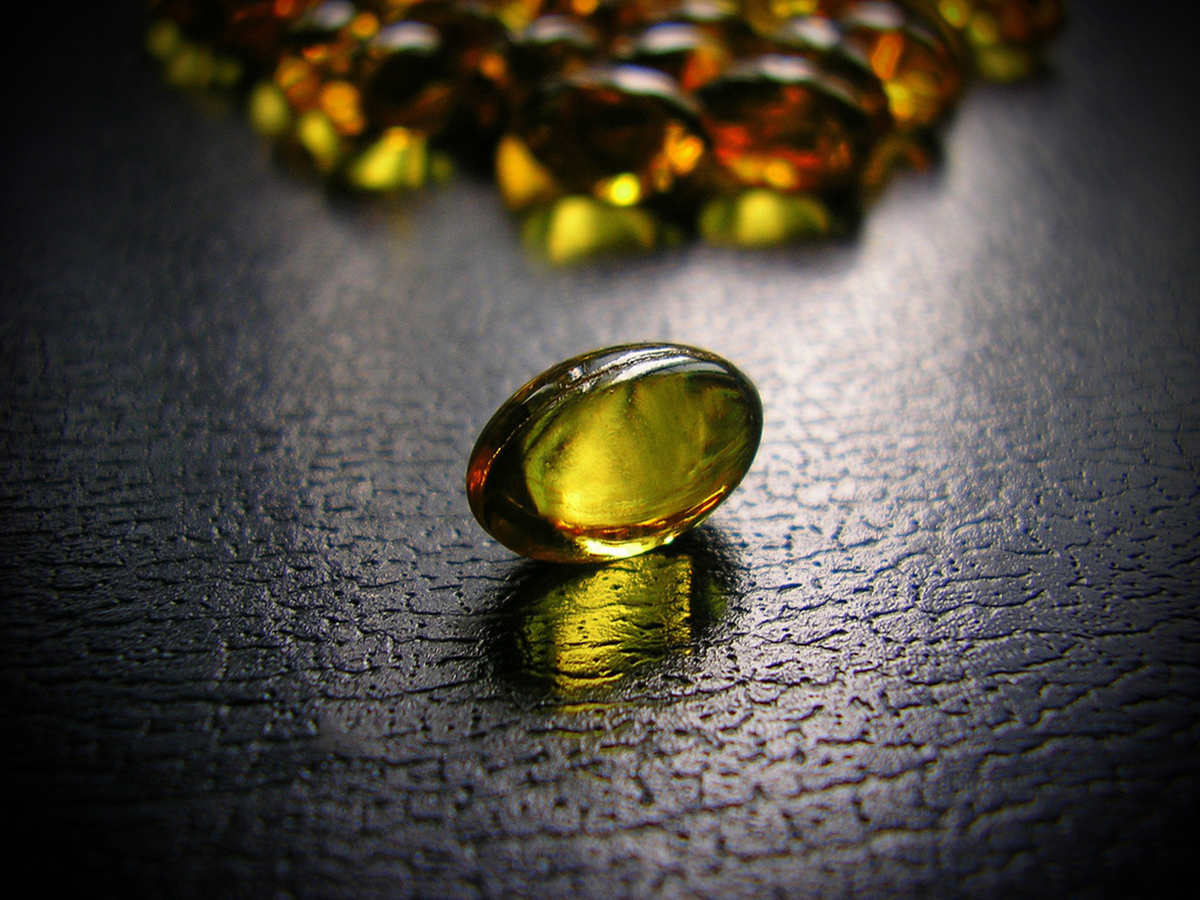Are you getting all the vitamins and minerals you need? When you ponder this question, your mind will probably immediately turn to your diet — because real food is usually the best source of vitamins and minerals, beating supplements nearly every time.
Vitamin D is an exception. Though this vitamin can indeed be found in certain foods, its most important source is sunlight. Not everyone can harvest enough vitamin D from the sun, however, and some groups of people are advised to take a daily supplement to protect their health.

What is vitamin D, what do we need it for, and should you be taking a supplement or increasing your exposure to sunlight?
What Is Vitamin D?
Vitamin D is a vitamin, but not an essential dietary one. Though vitamin D can naturally be found — in relatively small quantities — in some foods, and though it is artificially added to many other foods, sunlight is the main source of vitamin D for humans. A healthy and balanced diet will provide people with most vitamins and minerals they need in sufficient amounts, but vitamin D is a different story.
The simple fact that vitamin D is widely available through sunlight doesn't mean that everyone gets enough through spending time outside, either. That depends on your habits, sunscreen use, and where in the world you live.
Food sources of vitamin D can be divided into three groups: meat sources of vitamin D (D3 or cholecalciferol), plant sources of vitamin D (D2 or ergocalciferol), and foods that are artificially fortified with vitamin D.
Sources of vitamin D3 include various kinds of fish (like salmon, mackerel, sardines and herring), cod liver oil, oysters, caviar, salami, ham, liver and sausages. Eggs are a good source of vitamin D3 for lacto-ovo vegetarians. Cereals, milk, yogurt and orange juice are often fortified with vitamin D3.
Natural sources of vitamin D2 include shiitake and portobello mushrooms and alfafa. Like vitamin D3, vitamin D2 is also produced synthetically, as a result of which supplements are also available. Research suggests that vitamin D3 is much more beneficial than vitamin D2, however, because the vitamin is more easily absorbed by the body in this form.
Both types of supplements have about the same cost, so vitamin D3 is a better choice unless you are a strict vegan. Jews who keep kosher can take vitamin D3 supplements but need to look out for a hechsher. Halal vitamin D supplements are also available for Muslims.
Why Do We Need Vitamin D?
We need vitamin D for lots of different important bodily functions, and research about its role in the human body is always ongoing but sometimes controversial and though it is recommended for a variety of diseases, adequate scientific evidence to support the effectiveness of supplements is often lacking.
Here's what we know at the moment. Humans need vitamin D for strong bones and teeth throughout life, and indeed even before birth.
Vitamin D is, in combination with sufficient amounts of calcium, important for the prevention of osteoporosis or brittle bones. Since older people have a higher risk of brittle bones, they are often advised to take supplements. Children up to four years old need vitamin D to prevent rickets, a bone condition caused by a vitamin D deficiency.
A lack of vitamin D can cause low muscle tone in people of all ages, and research further suggests that higher vitamin D levels in mothers during pregnancy lead to a better muscle tone in babies. A child's grip is stronger if his mother's vitamin D levels were sufficient while he was in utero. It should come as no surprise that vitamin D is prescribed to people with muscle weakness, then.
Read More: Vitamin D - How Much Do We Need And How Do We Get It?
Now for the controversial bit. Vitamin D may also be used by people with a variety of other ailments and conditions, and may or may not be beneficial for them. Conditions for which vitamin D is sometimes taken include bone conditions, cardiovascular diseases, multiple sclerosis, rheumatoid arthritis, lung diseases, and even premenstrual syndrome (PMS).
Finally, you might be advised to take vitamin D if you have skin conditions such as vitiligo, scleroderma, or psoriasis, if you have a weak immune system for a range of reasons, or if you are deficient in phosphorous or calcium. In that case, boosting your vitamin D levels will aid the absorption of these minerals.
Boosting Your Vitamin D Levels Through Sunlight And Supplements
Sunlight And Vitamin D
Are you wondering if you are getting enough vitamin D? Your vitamin D levels depend on a great number of factors. Though sunlight accounts for at least 80 percent of your total vitamin D influx, the amount of vitamin D you are getting from the sun depends on where you live, the season, and your skin tone.

The Vitamin D Council has some tips on increasing the vitamin D you harvest from the sun. They advise you to make sure you are exposed to sun in the middle of the day, but point out that you will have higher vitamin D levels if you expose more skin. People who live close to the equator will have an easier time getting the vitamin D they need, as do those with lighter skin.
People who have dark skin, live far from the equator, can't find time to go outside until later in the day, or wear a head covering might well want to think about supplementing vitamin D, however.
Who Needs To Take Vitamin D Supplements?
Anyone who is concerned about their vitamin D levels can ask to be tested for a vitamin D deficiency. Ask your family doctor for a 25(OH)D test, or order a home test online and send your blood to a laboratory to be tested.
The following groups are advised to take 10 micrograms (mcg) of supplemental Vitamin D, ideally D3, a day:
- Children up to four years old
- Females between the ages four and 49, if they have dark skin or are not outdoors very often
- Males between the ages of four and 69, if they have dark skin or are not outdoors very often
- Women aged between 50 and 69 — or women who went through the menopause prematurely, due to the increased risk of osteoporosis
- Pregnant women
- Obese people
Everyone aged 70 or older should be taking 20 mcg of vitamin D a day to help prevent osteoporosis, usually in combination with vitamin A.
Read More: Vitamin D And Bone Health
Depending on where you live, you might get a letter from your family doctor or a government agency informing you that you fall into a group that should be taking vitamin D as a supplement. It is, however, important to be proactive even if this does not happen.
- Photo courtesy of Emuishere Peliculas by Flickr : www.flickr.com/photos/bizzzarro/928520578/
- Photo courtesy of Ed Yourdon by Flickr : www.flickr.com/photos/yourdon/3810085012/


Your thoughts on this